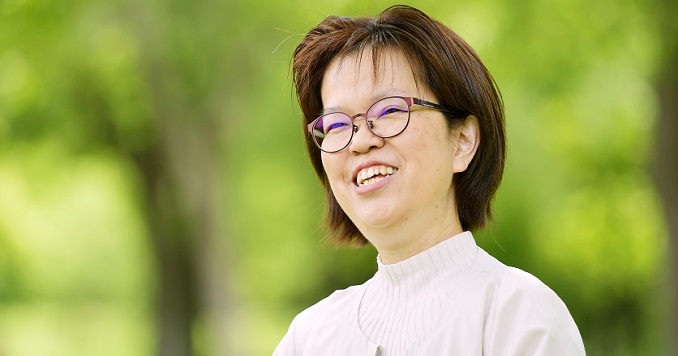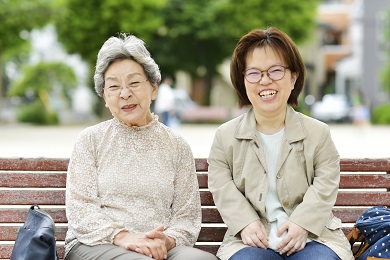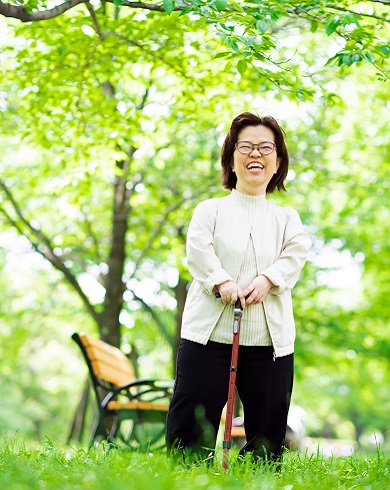Creating Memories That Last for Eternity

In another instance, many of us have friends that we might meet for the first time in years, yet feel as though no time has passed. Because of shared memories, experiences and bonds developed over time, that kind of friendship endures no matter the circumstances.
In the SGI, too, we hear many stories of members who, despite suffering dementia or memory loss, never forget how to chant Nam-myoho-renge-kyo and continue striving in some way for kosen-rufu as they have previously done for many years.
How We Conclude This Lifetime Determines the Next
Nichiren teaches us that the most powerful memories, which "will remain as the only memory of your present life" (WND-1, 64), are based on chanting Nam-myoho-renge-kyo and teaching others to do the same. It may seem like an extreme statement to some, but what he is saying is that, after we die, what we take with us is the life condition that we have developed during this present existence.
As Buddhists, we believe that life is eternal and that the state of life with which we conclude this existence determines how we experience our next lifetime. Our Buddhist practice enables us to establish as "muscle memory" the life state of Buddhahood, which will persist eternally. Buddhahood can be described as a state in which we exude the utmost joy, hope, courage, compassion and wisdom, and advance with a sense of absolute happiness and freedom.
Our daily Buddhist practice helps us awaken to our greatest self, our Buddha nature, each day. And by regularly developing our faith, practice and study, we learn and engrave in our lives how to overcome any struggle and achieve our goals.
The causes we make to awaken the Buddha nature in ourselves and others enable us to transform our state of life and make the life condition of Buddhahood the eternal foundation of our lives.
"Treasures of the Heart" Endure Forever
Commenting on the above passage from Nichiren, SGI President Ikeda states:
Those who are actively engaged in helping others form connections with Nichiren Buddhism will accumulate unparalleled "treasures of the heart" ("The Three Kinds of Treasure," WND-1, 851), which will be the supreme memory of this existence and enable them to lead wonderfully fulfilling and happy lives.
Even if we have the treasures of the storehouse (material wealth) and the treasures of the body (such things as physical health, practical abilities and social position), if we don't have any treasures of the heart, we cannot be called truly happy. (February 2018 Living Buddhism, p. 47)
While Buddhism does not deny the importance of having financial stability, physical health or other similar elements, such things alone cannot ensure absolute happiness because they are dependent on external circumstances.
"Treasures of the heart," on the other hand, point to our strength, courage, wisdom, compassion and other internal qualities that remain with us no matter our situation or struggles. Therefore, an important question is, What is in our hearts as we strive to realize our dreams and goals? When we make the "treasures of the heart" our foundation, then the treasures of the storehouse and body, and all other aspects of our lives are further enhanced and illuminated.
Nichiren Buddhism teaches us how to develop an internal palace of happiness that can never be destroyed.
President Ikeda says:
Chanting ourselves and teaching others to do the same are actions of unsurpassed good that accord with the Law of life and will stay with us as an indelible memory.
Sharing Nichiren Buddhism with others can be challenging, but it is a source of incredible personal growth. The more challenging it is, the greater will be our ultimate good fortune and happiness. (March 2, 2012, World Tribune, p. 3)
By chanting and teaching others about Buddhism, we can create powerful momentum for bringing forth our Buddhahood. As long as we strive to take one step and then another each day to cultivate our faith and find the best ways to share this practice with others, we will continue to accumulate indestructible treasures of the heart and steer our lives in the direction of lasting fortune and happiness.



